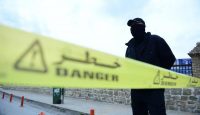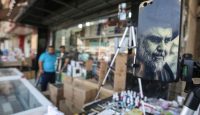
Are new US financial restrictions on Iraq missing their target?
Iraq has once again been hit by US financial restrictions, this time aimed at restricting specific banks and individuals from trading in the Central Bank of Iraq (CBI)’s daily currency auctions. The timing of these economic measures can in part be attributed to increased tensions between the US and Iran, that are once again being played out in Iraq. However, the elites targeted by the sanctions are finding ways around them, while the real impact is being felt by ordinary Iraqis, whose lives are made even more difficult as currency fluctuations make essential goods, like food and medicine, more expensive and less accessible.… Seguir leyendo »



















